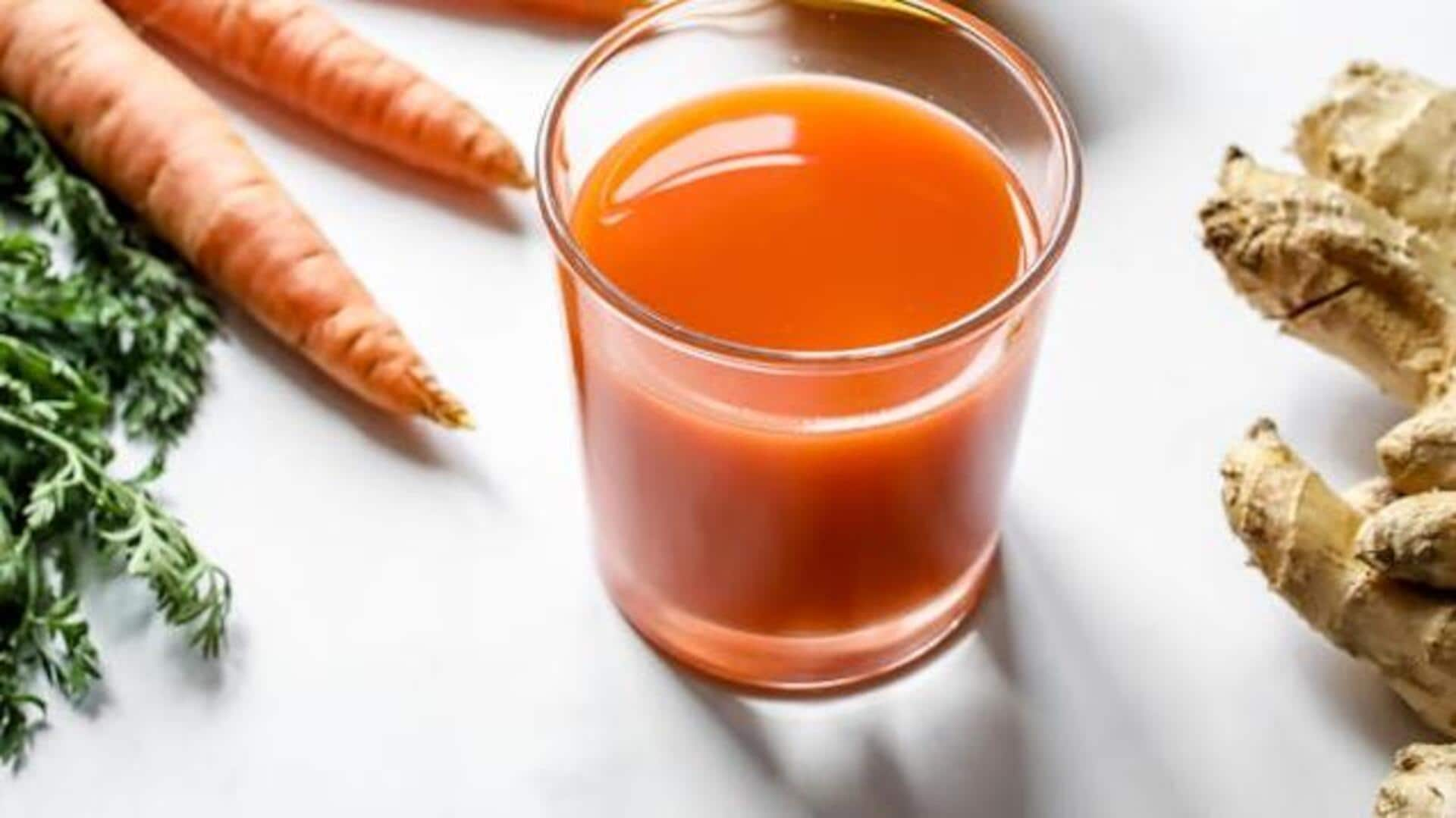
Why you should choose carrot-beet-ginger juice over canned juices
What's the story
In a world where convenience is king, many of us have traded in our juicers for the ease of canned options.
However, the nutritional benefits of freshly made juices like carrot-beet-and ginger juice simply can't be matched by anything in a can.
Read on to find out why choosing this vibrant blend not only guarantees unbeatable taste but also a whole host of health benefits.
Nutrient content
Nutritional superiority of fresh juice
Freshly squeezed carrot-beet-ginger juice is a delicious and healthy way to start your day! It's loaded with vitamins, minerals, and antioxidants.
In contrast to canned juices, which often lose nutrients during processing and contain added sugars and preservatives, fresh juice preserves all its natural goodness.
For example, just one serving can deliver over 50% of your daily recommended intake of vitamin A.
Sugar levels
The sugar content difference
Canned juices are infamous for being loaded with sugar.
Certain brands pack a whopping 30 grams of sugar per serving, and the worst part is that most of it is added sugar, not the kind that occurs naturally.
On the other hand, natural sugars in homemade carrot-beet-ginger juice come with fiber (when not completely strained) that assists in controlling your blood sugar.
Digestion aid
Boosting digestive health
The combination of carrot-beet-and ginger juice is a digestive powerhouse.
Ginger is known for its ability to soothe the stomach and reduce inflammation, making it a perfect pair for beets.
Beets offer a high fiber content that promotes digestive health.
And, carrots are rich in vitamin A, which improves liver function.
These ingredients work together to support digestive health.
Sustainability
Environmental impact
Opting to prepare your own juice from fresh fruits and veggies eliminates the need for packaged goods, significantly reducing waste production.
Most store-bought juices come in packaging that either ends up as landfill waste or requires energy-intensive recycling processes.
By storing homemade juice in reusable containers, you can further minimize your environmental footprint.
Budget friendly
Cost-effectiveness
Although it may appear that purchasing fresh fruits and vegetables for juicing is pricier than grabbing canned juices from the store, it is actually more economical in the long run.
Apart from saving money on potential health costs associated with lower nutritional value and higher sugar content in canned juices, it also provides more servings per dollar when purchased in bulk during the season.